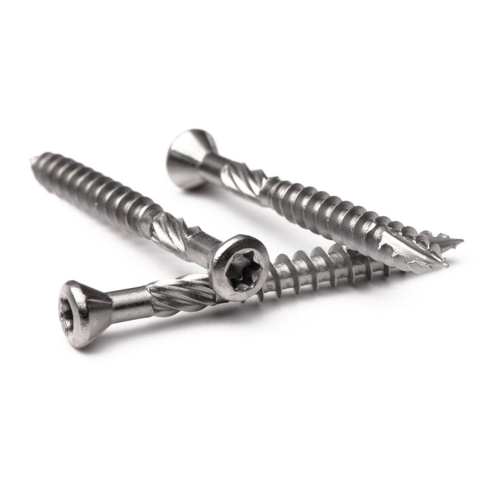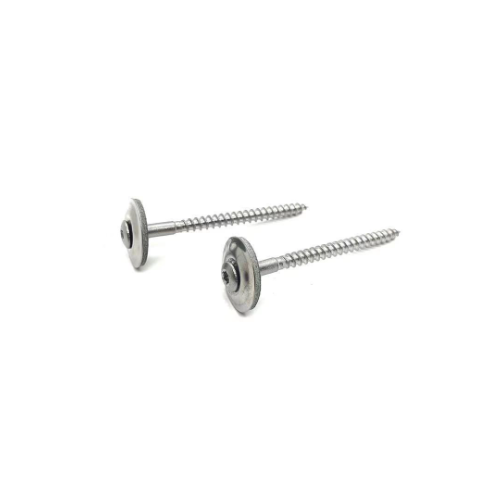Copyright © 2021 Kinfast All rights reserved. 粤ICP备06034726号 Site Map Powered by iwonder.cn
- TEL: +86-755-8347-9123
- E-MAIL: info@kfproduct.com
Two of the most common screw types you’ll find in hardware stores are wood screws and deck screws. If you’re working on a project that requires screws and you’re not sure which type to reach for, fear not – I’ll break down both of these screw types in detail.
To answer the question 'what is a decking screw', these are screws that have been specifically designed to work on securing a deck board to timber or composite joists. The design of the screw, from its extra-pointy tip, deeper threads and larger surface area, all make for a more stable and stronger join between the top frame and supporting substructure.
Deck screws also feature a coated surface which means they can withstand harsh weather conditions, with rust-resistant properties for those outdoors settings. Decking screws are usually longer than wood screws to better match the thickness of the material.

Wood screws are the general name given to the types of screws used for standard carpentry and joinery. These types of screws are designed in a way that provides a secure join between two pieces of wood, with a sharp tip and wide head. Standard wood screws are usually not tapered and when countersunk will sit flush with the top of the wood.
l Screw head –a deck screw should have a similar flat countersunk surface like a wooden screw, but with a larger surface area offering greater load-bearing capacity. The head should be shaped in a bugle or flare shape. Why is it designed this way? It’s to ensure that the fastener doesn’t sink into the material that it is screwed into. Unfortunately, wooden screws do not have the same bugle shape and tend to, over time, work their way into the material which causes cracking, splitting and similar.
l Shank – deck screw shanks are designed for long-term durability. They typically feature an aggressive point and sharp threading that quickly and firmly secures the item. The tapered and partially threaded shank ensures that by the time the screw is secured into the wood, there’s no room for any type of movement. With wood screws, the threading on the shank is not as deep, and the shank is not fully threaded.
l Threading – deck screws have sharp, deep threading which quickly and easily cuts into the item and secures itself. While wooden screws are also threaded, they tend to be less sharp and tapered which can hamper their long-term efficiency.
As deck screws need to be highly corrosion and rust-resistant, they utilize durable materials like polymer or epoxy-coated steel and 304 or 316 grade corrosion-resistant stainless steel.
Standard wood screws are made from alloy or stainless steel and may feature some type of coating or plating depending on their intended use case. Wood screws designed for indoor use are often made from zinc-plated alloy steel.

Wood screws are perfectly suited to most woodworking projects, as long as the wood will be used inside or away from very harsh weather conditions. Wood screws are perfect for constructing wooden items and joining pieces of wood together.
If you are tackling an outdoor project, you should be using deck screws. Deck screws can be used on the decking to fasten boards, build framing and install rails. They can withstand harsh weather conditions and handle a larger weight than normal wood screws which makes them perfect for any wooden structures that need to be more robust.
Whether you’re buying wood or deck screws, be sure to pick the right screw for your project by considering the type of head (flat or crosshead), the shape of the head (round, flat or oval) and the length of the screw.
Purchase best quality screws from us
At Kinfast you can find a selection of stainless steel deck screws or stainless steel wood screws for your project. For more information on our extensive range, and the best type of fastener to use for your project, simply contact us today directly.